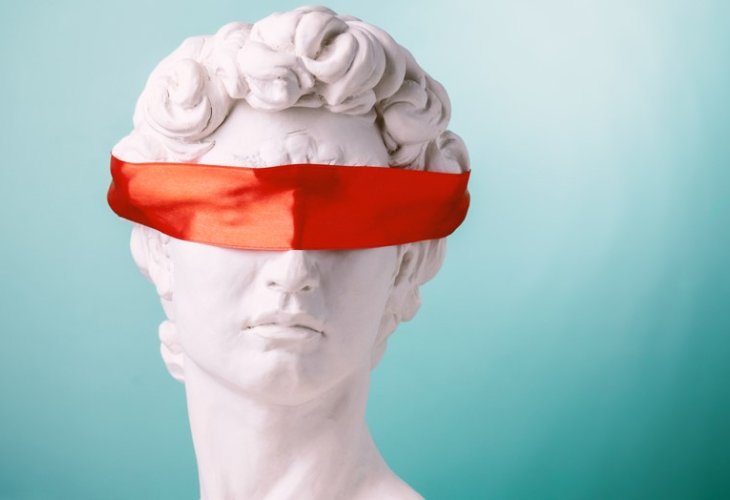Beginners Guide
The Beginner's Guide: What's the Deal with Religious People and Guarding the Eyes?
No watching TV and movies, using filters on computers and smartphones—isn't that a bit much?
 (Photo: shutterstock)
(Photo: shutterstock)1. The eye is the gateway to our desires. Every company that creates products understands that without investing in marketing and advertising, its future is bankruptcy. An advertisement always illustrates an unrealistic reality of unattainable perfection, aiming to make the viewer believe that purchasing the product will allow them to achieve that coveted feeling. The eye serves as the gateway to the soul, influencing our desires, for better or worse.
Rashi writes on the commandment "Do not follow your heart and your eyes"—"The eye sees, the heart covets, and the body commits the transgressions." When a person sees forbidden sights or reads incorrect opinions, these sink into his soul and may eventually lead him to actions he would not have wanted. Avoiding forbidden sights serves as a protective wall, defending a person from negative deeds.
2. Forbidden sight harms the soul. What a person sees affects his thoughts, purity level, imagination, and moral standards. A person who views transgressions finds that his fear of heaven cools, and his sensitivity becomes coarser. The more one guards the holiness of their eyes, the more they sanctify themselves and achieve much higher spiritual attainments than one who does not guard their eyes.
3. Enjoy life more. The Torah commands, "Do not follow your heart and your eyes," indicating that men are forbidden to look deliberately at women or even see them superficially if they are not dressed according to the rules of modesty. By adhering to the commandment of guarding the eyes, a woman's beauty increases in her husband's eyes, as he has not been exposed to outside comparisons. When a man refrains from looking at the beauty of other women, not only does the woman win by bearing more charm in her husband's eyes, but the husband himself is the primary benefactor, as his wife appears to him as the most beautiful among women.
4. Defiling your temple. Rabbi Zamir Cohen explains in his book 'Keys to Life' that according to the Kabbalah, a person is considered a small temple, and the brain, the dwelling place of the soul, corresponds to the Holy of Holies in the Temple. Therefore, a person who introduces an immodest sight into the brain, is akin to placing an idol in the Holy of Holies.
"The eyes are like the illuminating menorah that allows seeing, the stomach like the altar that processes the meat, the nose corresponds to the incense altar, and so on.
"And where is the Holy of Holies found in the human body? In the brain. It is the dwelling place of the soul, akin to the Ark of the Covenant in the Holy of Holies that holds the Tablets of the Law. A person introducing an immodest sight into the brain through forbidden looking is as if they placed an idol in the Temple's Holy of Holies."
The Weekly Challenge
1. Configure your computer to block images on internet sites. You can set specific sites where images will be blocked. Alternatively, a preferred option is to set all website images to be blocked except for exceptions you specify, which are kosher sites without problematic images. How do you do it? Search Google for "see what needs blocking pictures on sites," and you'll get detailed instructions.
2. Install filtering software on your computer, so that internet sites with inappropriate content will be blocked. There are numerous filtering software programs with varying levels of protection, such as Rimon, Etrog, Netfree, Nativ, Netspark, and more.
3. Do you have a smartphone and want to take a step forward? One option is to install a filtering app on your existing smartphone, like Netspark, Rimon, etc. Another option is using a "protected smartphone" that you can purchase from Edan, Nativ, Musgah, Mehadrin Plus, and more. The best option is to switch to a kosher phone.
4. If you own a TV, replace it with the kosher converter 'Zofiya' from the Hidabroot organization, which contains countless rich and engaging content. For more informationvisit the 'Zofiya' site ,or call us at 073-3-333-333. (The converter is not intended for ultra-Orthodox families and is subject to a rabbinical committee)

